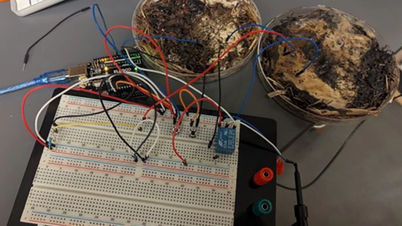Question:
My father recently passed away and everyone in the family found a will that he wrote and saved on his personal computer while he was alive. In this case, is the will valid or not?
Reply:
According to the provisions of the Civil Code, a will must be made in writing. If it is not possible to make a written will, an oral will can be made. Thus, there are only two forms of wills: written or oral.
According to Article 628 of the 2015 Civil Code, a written will will include:
1. A written will without witnesses.
2. Written will with witnesses.
3. Notarized written will.
4. Certified written will.
Article 633 of the Civil Code stipulates: If a written will is not witnessed, “the testator must write and sign the will himself.”
In addition, according to Article 629 on oral wills:
1. In case a person's life is threatened by death and he/she cannot make a written will, he/she can make an oral will.
2. After 03 months from the time of the oral will, if the testator is still alive, lucid and clear-minded, the oral will is automatically revoked.
In addition, a valid will under Article 630 of the 2015 Civil Code is stipulated as follows:
Article 630. Legal will
1. A valid will must satisfy the following conditions:
a) The testator is of sound mind and clear-headed when making the will; is not deceived, threatened or coerced;
b) The content of the will does not violate the prohibitions of the law or social ethics; the form of the will does not violate the provisions of the law.
2. The will of a person from fifteen to under eighteen years of age must be made in writing and must have the consent of the father, mother or guardian.
3. The will of a physically handicapped person or an illiterate person must be made in writing by a witness and notarized or authenticated.
4. A written will without notarization or certification shall only be considered legal if it satisfies all the conditions specified in Clause 1 of this Article.
5. An oral will is considered legal if the oral testator expresses his or her last will in front of at least two witnesses and immediately after the oral testator expresses his or her last will, the witnesses record it, sign or fingerprint it. Within 05 working days from the date the oral testator expresses his or her last will, the will must be notarized or certified by a competent authority to confirm the signature or fingerprint of the witness.
Thus, the content drafted on a computer does not meet the formal requirements to be considered a will.
On the other hand, a will is an expression of an individual’s will to transfer his or her property to another person after death. Therefore, the documents stored on a computer cannot prove whether it is the will of the deceased or not. Therefore, this case cannot be considered a legal will.
Minh Hoa (t/h)
Source



![[Photo] Parade to celebrate the 50th anniversary of Laos' National Day](/_next/image?url=https%3A%2F%2Fvphoto.vietnam.vn%2Fthumb%2F1200x675%2Fvietnam%2Fresource%2FIMAGE%2F2025%2F12%2F02%2F1764691918289_ndo_br_0-jpg.webp&w=3840&q=75)




































![[Photo] Worshiping the Tuyet Son statue - a nearly 400-year-old treasure at Keo Pagoda](/_next/image?url=https%3A%2F%2Fvphoto.vietnam.vn%2Fthumb%2F1200x675%2Fvietnam%2Fresource%2FIMAGE%2F2025%2F12%2F02%2F1764679323086_ndo_br_tempimageomw0hi-4884-jpg.webp&w=3840&q=75)







































































Comment (0)